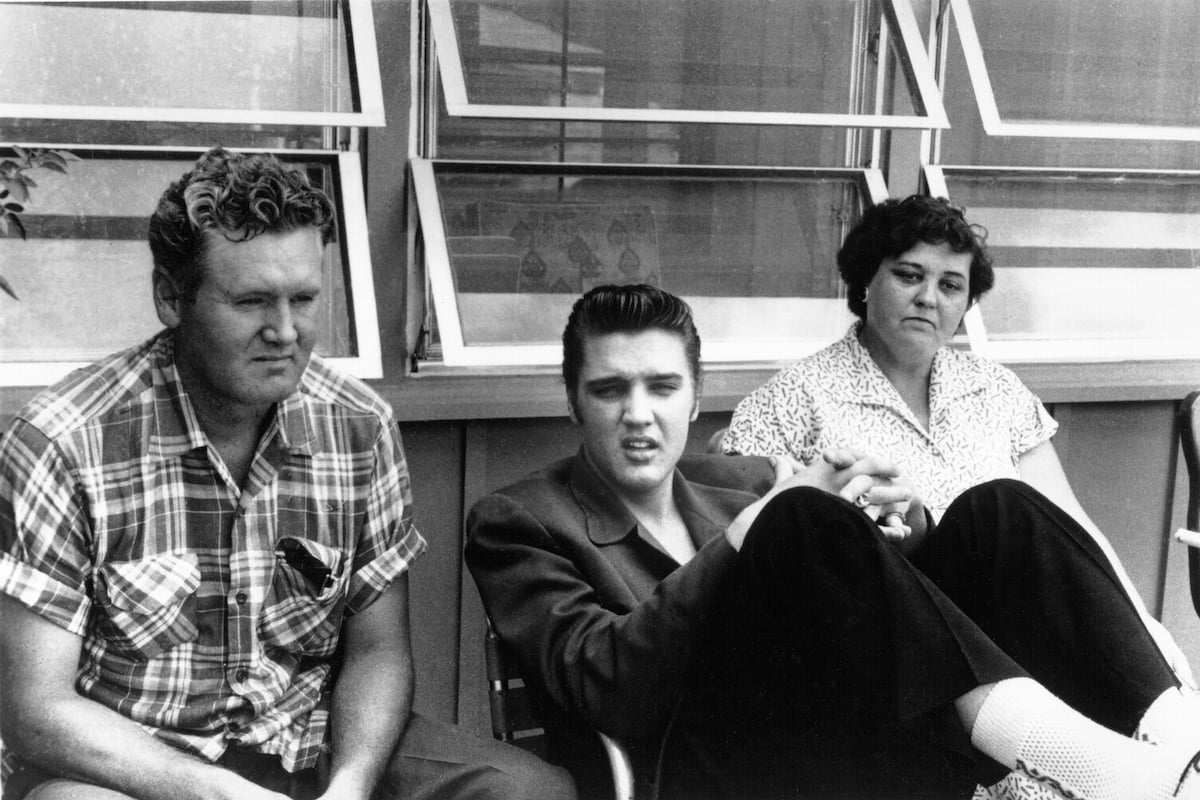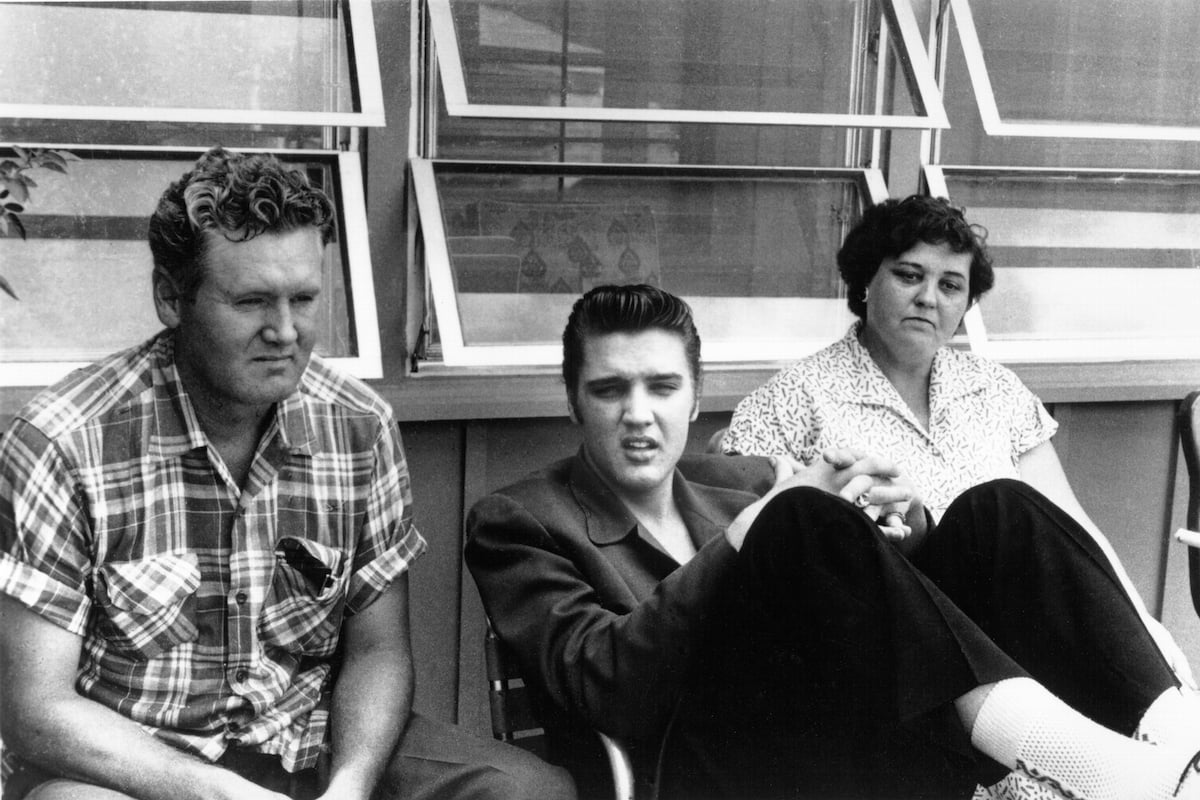
Elvis Presley’s ‘Riled Up’ Dad Responded to the Claim That His Family Was ‘Nothing but Poor White Trash’
Elvis Presley’s life and career are the stuff of legend. Even 45 years after his death, fans keep his legacy alive. And 2022’s acclaimed biopic, Elvis, has certainly helped bring newcomers to Presley’s iconic music.
However, even the King of Rock and Roll faced adversity early on. In particular, Presley and his family faced a specific stigma as he experienced fame and fortune.
Elvis Presley’s family didn’t have money when he was growing up

Presley was born on January 8, 1935, in Tupelo, Mississippi. Though he would eventually become one of the most beloved and iconic entertainers of all time, he and his family were far from the level of financial stability Presley would reach much later on in life.
In fact, Presley’s father, Vernon Presley, once said, according to ElvisInfoNet.com, “There was almost nobody poorer” than him and his wife Gladys when they welcomed their sons into the world. Elvis was born soon after Jesse, his twin brother. His parents immediately had to face Jesse’s death as he was stillborn.
Elvis Presley’s perception as ‘white trash’ affected his rise to fame
Because of how and where he grew up, some naysayers considered Elvis to be “white trash.” In an interview with Good Housekeeping, Vernon took that question on directly:
“The writer of an ugly, untruthful book about Elvis said on TV that we Presleys were nothing but poor white trash. Well, I want to answer that right here, because his comment riled the whole state of Mississippi. Poor we were. I’ll never deny that. But trash we weren’t. As a matter of fact, I’m not sure what ‘trash’ is.
There were times we had nothing to eat but cornbread and water. But we always had compassion for people. When I was growing up, we never had any prejudice. We never put anyone down. Neither did Elvis.”
Naturally, Vernon took offense to the term and rose to defend his son’s reputation. After all, because of their class, Elvis already faced adversity growing up.
Elvis Presley might’ve worried about this unwanted image
As author Nancy Isenberg describes in her book White Trash: The 400-Year Untold History of Class in America, the label of “white trash” may have plagued Elvis throughout his career.
In fact, it could perhaps be part of why he reportedly desired to prove himself as a serious artist throughout his music and film career. But it also gave Elvis something of an underdog status.
“[Elvis Presley] achieved what no white trash working-class male had ever dreamt possible,” Isenberg wrote in her book via Elvis-History-Blog.com. “He was at once cool and sexually transgressive and a ‘country boy.’ No longer a freakish rural outcast, as in the past, Elvis was a ‘Hillbilly Cat,’ someone many teenage boys wished they could be.” The rest was history.


